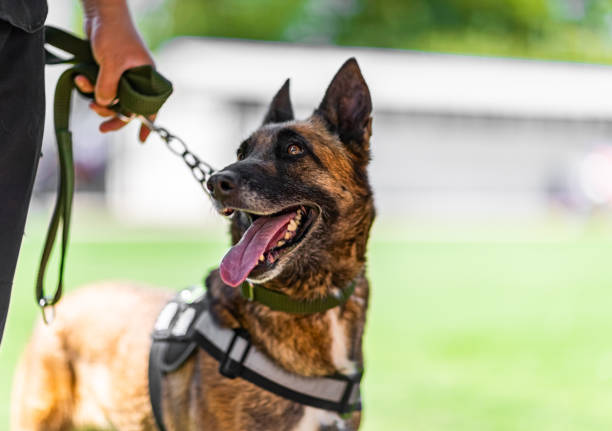Dog Training in the UK 2025: Why More Owners Choose Professional Help
Dog training is becoming increasingly popular in the UK in 2025. With more people adopting dogs after the pandemic, owners are seeking professional guidance to improve socialisation, correct unwanted behaviours, and build a stronger bond with their pets. From puppies to older dogs, modern training methods focus on positive reinforcement, safety, and well-being.

Benefits of Dog Training for Everyday Life
Dog training extends far beyond teaching basic commands like “sit” and “stay.” Professional training addresses numerous everyday challenges that dog owners face. Well-trained dogs are less likely to exhibit destructive behaviors such as chewing furniture, excessive barking, or inappropriate elimination. This reduction in problematic behaviors creates a more harmonious household environment where both humans and canines can thrive.
Safety represents another crucial benefit of professional dog training. Dogs that respond reliably to recall commands are less likely to run into dangerous situations like busy roads or confrontations with other animals. Additionally, trained dogs typically display reduced anxiety when encountering new situations or people, making everyday activities like walks, vet visits, or having guests over significantly less stressful for everyone involved.
For many UK dog owners in 2025, the convenience factor has become increasingly important. Professional training helps develop dogs that can accompany their owners to various settings, from outdoor cafés to friends’ homes, without creating disruptions or requiring constant management.
Modern Training Methods in 2025
The evolution of dog training methods has accelerated significantly in recent years, with 2025 marking a decisive shift away from outdated punishment-based approaches. Modern professional trainers now predominantly employ positive reinforcement techniques, which reward desired behaviors rather than punishing unwanted ones. This approach is not only more humane but also more effective, as it builds confidence in dogs while strengthening the human-canine relationship.
Technology has also transformed how training is delivered. Many professional trainers now incorporate digital tools such as training apps, video analysis, and virtual follow-up sessions to complement in-person training. These innovations allow for more consistent application of training techniques and provide owners with ongoing support between sessions.
Another significant development in 2025 is the increased personalization of training programs. Professional trainers now routinely conduct thorough assessments to understand each dog’s unique temperament, learning style, and specific behavioral challenges. This individualized approach replaces one-size-fits-all training models and delivers more effective results across different breeds, ages, and personality types.
Dog Training Costs and Options in the UK
Professional dog training in the UK encompasses a range of options to suit different needs and budgets. Group classes typically offer the most economical entry point, while private sessions provide more personalized attention. Specialized behavior modification programs address specific issues like aggression or separation anxiety but generally command higher fees due to their intensive nature.
Modern training packages frequently combine multiple formats, such as initial private consultations followed by group practice sessions or in-person training supplemented by virtual support. This hybrid approach optimizes both effectiveness and value for money.
| Training Option | Average Cost Range | What’s Included | Best For |
|---|---|---|---|
| Group Classes | £80-£150 (6-8 sessions) | Basic commands, socialization, general obedience | Puppies, social dogs, basic training |
| Private Sessions | £60-£100 per hour | Personalized training plan, one-on-one attention | Specific issues, shy dogs, busy schedules |
| Board and Train | £700-£1,500 per week | Intensive training while dog stays with trainer | Serious behavioral issues, time-constrained owners |
| Online Coaching | £40-£80 per session | Virtual guidance, training plans, follow-up support | Budget-conscious owners, minor issues, remote areas |
| Behavior Modification | £300-£600 (assessment and initial sessions) | Specialized treatment for serious issues | Aggression, anxiety, compulsive behaviors |
Prices, rates, or cost estimates mentioned in this article are based on the latest available information but may change over time. Independent research is advised before making financial decisions.
Building a Stronger Bond Between Dog and Owner
Perhaps the most significant benefit of professional dog training in 2025 is the strengthened relationship it fosters between dogs and their owners. The training process facilitates clearer communication between species, helping owners understand their dogs’ needs and behaviors while teaching dogs how to respond appropriately to human cues and expectations.
This improved communication reduces frustration on both sides and builds mutual trust and respect. Many UK owners report that the structured training environment helps them better understand their dog’s perspective and unique personality, leading to deeper emotional connections. Professional trainers now explicitly include relationship-building techniques in their programs, recognizing that the human-canine bond forms the foundation for all successful training outcomes.
The shared experience of learning together creates positive associations for both dog and owner. As dogs begin to view their humans as consistent, fair leaders who provide clear guidance, their confidence increases, and problem behaviors often diminish naturally. Meanwhile, owners gain satisfaction from their dogs’ progress and develop greater patience and empathy through the training process.
The growing emphasis on professional dog training in the UK reflects a deeper cultural shift toward viewing dogs as valued family members deserving of proper education, understanding, and communication. As we progress through 2025, this trend shows no signs of slowing, with more owners recognizing that investing in quality training enriches both canine and human lives.




